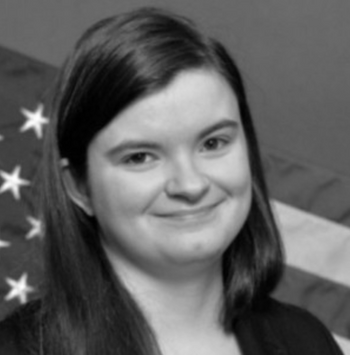Cato study: freedom of speech under assault on campus
A study by the Cato Institute has found that freedom of speech is under assault on college campuses across the country.
Daniel Jacobson, a professor at the University of Michigan, argues that “the very trends on campus that threaten freedom of speech also lend strong support to classically liberal justifications for it.”
Citing examples of American universities that have criticized freedom of speech, Jacobson asserts in his writing that the censorship of certain types of speech is directly “antithetical to classically liberal ideals about both the freedom of speech and the purpose of the university.”
“John Stuart Mill thought higher education should not tell us what it is our duty to believe, but should “help us to form our own belief in a manner worthy of intelligent beings,” Jacobson says.
Mill believed that “there ought to exist the fullest liberty of professing and discussing, as a matter of ethical conviction, any doctrine,” regardless of its falsity, immorality, or even harmfulness.”
Prof. Jacobson claims that the classical liberal argument for free speech has been traditionally exercised in two different ways. First, within the Founding Documents of the United States which recognize freedom of speech as a natural right. Second, the right’s grounding in utility “best promotes human flourishing.”
Academics today “consider freedom of speech just another American eccentricity, like guns and religion.” He believes that this thinking, mirrored within the United Nations and the European Union, has led to “growing antagonism” towards freedom of speech at American universities, especially within politically active groups on campus.
Prof. Jacobson further notes that academia is “overwhelmingly dominated” by liberals and progressives, many of which are known to be skeptical of free speech and “intolerant of dissenting opinion.”
“When students protest speakers who challenge political orthodoxy, claiming to be oppressed by hateful opinions whose expression constitutes aggression against them, they often see no reason to limit their tactics to criticism and demonstration. Their violent rhetoric of aggression and assault encourages violent countermeasures,” Jacobson writes, noting that “student protests are increasingly designed to punish their opponents and to prevent them from speaking or being heard: to shut them up or shout them down.”
Those protesters receive support from “activist” faculty and appeasing administrators, even when they break the rules. Even academic freedom is not immune from stifling dissent.
Prof. Jacobson claims that the traditional objections to free speech rely on the idea that certain opinions can be “dangerous or immoral” and thus should be prohibited. Jacobson also criticizes those who believe that free speech can be “violent.”
“The idea that opinions can wound, that they can trigger traumatic emotional episodes—which lead to (often violent) behavior for which the victim is not responsible—and that people should be safe from offensive views amounts to a substantive and dangerous claim that masquerades as innocuous and benign,” he writes.
If the alleged hatefulness of speech is enough to merit its censorship, then “that criterion creates a powerful incentive to label one’s opponents’ motives as hateful. It should be no surprise to see this happening.”
However, not all schools are working to suppress free speech on their campuses.
Last year, the University of Chicago School of Law issued a statement reaffirming its commitment to maintaining "free, robust, and uninhibited debate and deliberation among all members of the University's community."
“Although members of the University community are free to criticize and contest the views expressed on campus, and to criticize and contest speakers who are invited to express their views on campus, they may not obstruct or otherwise interfere with the freedom of others to express views they reject or even loathe.
“To this end, the University has a solemn responsibility not only to promote a lively and fearless freedom of debate and deliberation, but also to protect that freedom when others attempt to restrict it,” the statement read.
When asked what universities should do in order to promote and fully preserve freedom of speech in an objective manner, Professor Jacobson had a few excellent suggestions:
“I think that, first, universities have to stop their own censorship and refusal to protect unpopular speech. This happens through speech codes, which is almost always vague and overly broad — often illegally broad — and stop disinviting conservative speakers,” he told Campus Reform.
“In fact they ought to be encouraging diversity of opinion by inviting more reputable speakers with views that are not in keeping with the progressive academic orthodoxy. They should also pay attention to the empirical evidence that many humanists are happy to discriminate against conservatives and other political dissenters. This is not only contrary to the traditional mission of the university, it is illegal. But it happens anyway.”
The Foundation for Individual Rights in Education, an organization heavily concerned with free speech, had a similar view.
“FIRE’s experience shows that instances of censorship on college campuses are a pervasive problem,” the organization told Campus Reform.
“Colleges and universities are places where knowledge is created, and if they do not embrace the underlying premise of the marketplace of ideas, they will be far less successful in achieving that goal. It is important to remember that free speech protects speech that challenges the status quo, and much of the social change that we have experienced could not have happened if those in power had the ability to choose which ideas and views could be expressed, and which could not.
“The best answer to ‘bad’ speech is more, ‘better’ speech. That clash of ideas is the way societies learn and progress, and there are fewer more important places for that clash to take place than on a college campus.”
Follow the author of this article on Twitter: @AutumnDawnPrice

